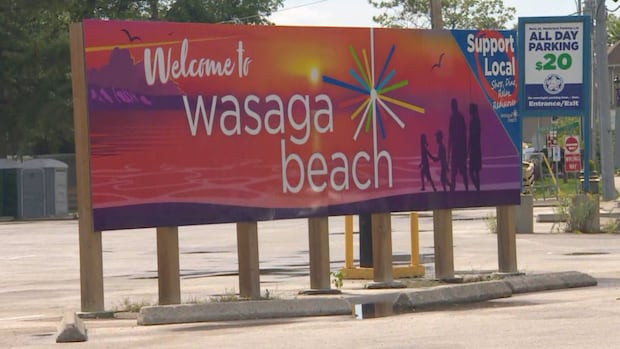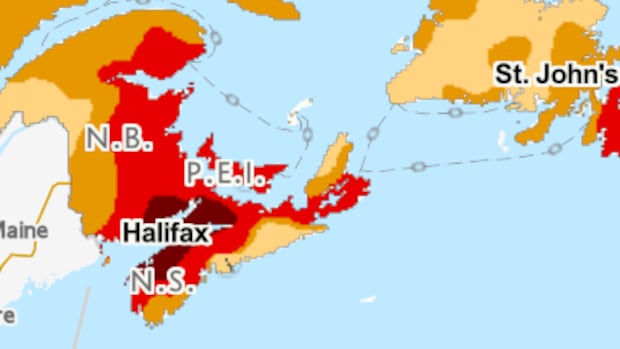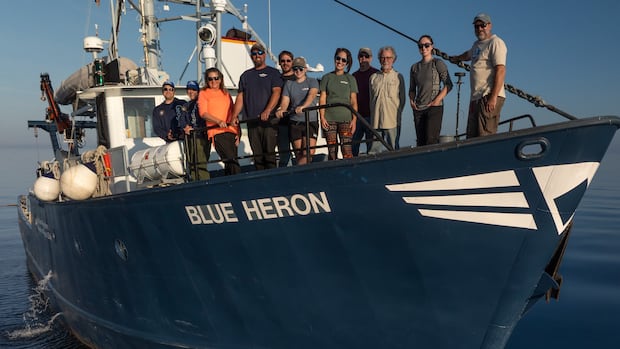The Ontario government’s plan to hand parts of Wasaga Beach Provincial Park over to the local town for tourism development could set an “awful precedent” for other provincially owned parks, environmental advocates say.
Premier Doug Ford announced in May that his government would give $38 million to Wasaga Beach to help revitalize the town’s tourism scene and support future housing.
Part of the proposed plan includes selling the town Beach Area 1, Beach Area 2, New Wasaga Beach and Allenwood Beach. The amount of land being transferred is nearly 60 hectares, a spokesperson for the town said in an email to CBC Toronto.
In late June, the province posted a proposal to amend both the Provincial Parks and Conservation Reserves Act (PPCRA) and the Historical Parks Act to support the land transfer.
The proposed changes are cause for concern, said Laura Bowman, a lawyer with the environmental law charity Ecojustice.
Although the language of the proposed amendments isn’t yet public, Bowman said there’s already a legislative approval process in place within the PPCRA to dispose of lands greater than 50 hectares, or one per cent of the total park or conservation area in question.
So, the desire to change the law suggests there’s a desire to dispose of other areas in the future, she said — and to do so in a way that bypasses a legislative vote and avoids scrutiny.
“This government has a history of trying to dispose of park lands and public lands,” Bowman told CBC Toronto.
“I don’t find it plausible, frankly, that this is a one-off thing,” Bowman said. “This is possibly setting a further precedent in that direction, and the developments are getting bigger and bigger.”
A spokesperson for the Ministry of Environment denied that the Wasaga Beach changes are more than a one-off.
“No other changes are being considered beyond those included in the [Environmental Registry of Ontario],” Alexandru Cioban said in an email to CBC Toronto.
Tourism push within ecologically sensitive area
The vision for Wasaga Beach is one of the province’s latest and largest waterfront tourism redevelopment projects in Ontario.
Transferring parts of the provincial park to the town would be especially positive for local residents and businesses, said Wasaga Beach Mayor Brian Smith.
“Our vision is and always has been to become a year-round destination here in Wasaga Beach that celebrates the longest freshwater beach in the world, but also the entire ecosystem here,” he told CBC Toronto.
From an ecological perspective, changes to the beach and the way it’s maintained now could have devastating consequences, said Tim Gray, executive director of Environmental Defence.
Wasaga Beach is home to the piping plover, a federally and provincially recognized endangered species, Gray said, and the beach dunes across the park play an important role in the region’s river system and as a buffer for flooding.
“Once these areas are removed from the park, those protections will no longer be in place,” Gray said.
“We’ll set an awful, awful precedent if it’s allowed to go ahead.”
Smith said his “guarantee” is that the town will act as stewards for the environment during the redevelopment process.
But Bowman said she isn’t confident that it can be done without the “Herculean efforts” provincial conservation scientists made to protect the plovers and their habitat.
Even raking the beach and keeping it manicured will prevent the endangered bird from eating, nesting, and successfully hiding from prey, she said.
“It really does potentially put the survival of that species in jeopardy,” Bowman said.
“These are important pieces of land for conservation and biodiversity and important recreation areas for the people of Ontario.”
Bill 5 sparked environmental concerns
All of the environmentalists CBC Toronto spoke to for this story drew a connection between these plans and the government’s recently passed Bill 5.
The law, which passed in June, removed provincial protections for certain aquatic species and migratory birds — ones that are also protected under the federal Species at Risk Act — and made it easier for the government to exempt companies or projects from complying with provincial laws or regulations.
Bill 5, on top of other controversial development flashpoints, such as the sale of Ontario Place and the Greenbelt scandal, has led to a deterioration of trust in the province’s willingness to put the environment ahead of investment opportunities, according to Jan Sumner, executive director of Wildlands League, who worked with her organization and Sierra Legal Defence Fund (now Ecojustice) on the current PPCRA.
“This is just another example of the Ford government feeling like they can step over the people of Ontario and hand out public land to private developers,” Sumner said.
The Ministry of Environment spokesperson said via email that the government’s support of Destination Wasaga will help “preserve local heritage, create jobs, boost tourism, and drive long-term economic growth across the region.”
Cioban said changes to the PPRCA would specifically relate to Wasaga Beach Provincial Park, but he declined to provide specific language or details about when proposed PPRCA amendments would be made publicly available.







